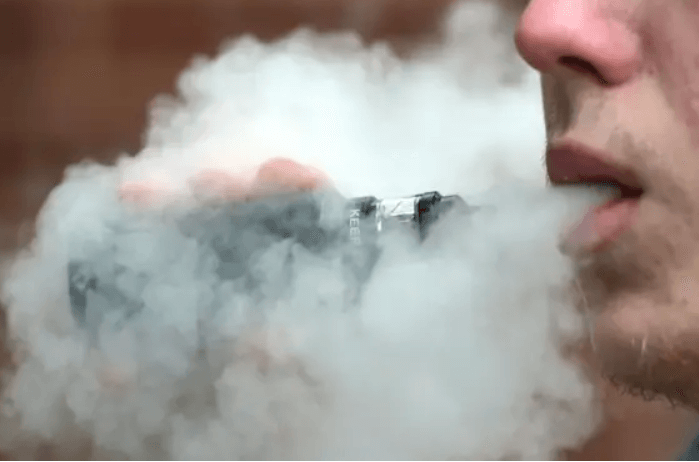The question of whether one can smoke CBD oil raises important considerations regarding safety and efficacy. While some may seek the rapid effects associated with inhalation, the potential respiratory risks of smoking oil-based substances cannot be overlooked. This prompts a closer examination of alternative consumption methods that may offer greater benefits without the associated health risks. As we explore the nuances surrounding this topic, it becomes evident that understanding the implications of each method is crucial for informed decision-making. What alternatives might provide a more favorable experience?
Understanding CBD Oil
CBD oil, derived from the hemp plant, contains cannabidiol, a non-psychoactive compound that has gained significant attention for its potential therapeutic benefits and various applications in wellness.
The process of CBD oil extraction varies, influencing the oil’s potency and purity.
Research suggests that CBD oil benefits include reducing anxiety, alleviating pain, and enhancing overall well-being, making it a compelling option for those seeking natural remedies.
See also: Can I Take Cbd Oil on a Plane
Smoking CBD Oil: Is It Safe?
Smoking CBD oil raises important safety considerations due to the potential risks associated with inhaling oil-based substances.
Health risks may include respiratory issues and exposure to harmful additives found in some products.
While various smoking methods exist, such as vaping, it is crucial to prioritize quality and purity to mitigate these risks.
Users should thoroughly research products and consult professionals before use.
Potential Effects of Smoking CBD
The potential effects of consuming CBD through smoking can vary widely among individuals, influenced by factors such as dosage, method of consumption, and individual tolerance levels.
Users often report health benefits such as anxiety relief, while some may experience side effects like dizziness.
Adhering to dosage guidelines and considering strain selections can optimize user experiences, reflecting current consumption trends in the evolving CBD landscape.
Legal Considerations for CBD
What legal frameworks govern the use of CBD products can significantly impact both consumers and manufacturers, necessitating a thorough understanding of regulations at local, state, and federal levels.
CBD legality remains complex, often leading to regulatory challenges that vary widely.
Awareness of these legal nuances is essential for ensuring compliance and safeguarding personal freedoms while accessing CBD products responsibly and lawfully.
Alternative Consumption Methods
Consumers seeking alternatives to smoking CBD oil have several effective methods at their disposal.
Vaping, edibles, beverages, and sublingual tinctures each offer unique benefits and absorption rates, catering to different preferences and lifestyles.
Understanding these options can help individuals make informed choices regarding their CBD consumption.
Vaping CBD Oil
Vaping CBD oil has emerged as a popular alternative consumption method, offering users a rapid onset of effects and a variety of flavors and formulations.
This method utilizes various vaping devices, allowing for precise dosage and enhanced bioavailability.
Users often report health benefits such as reduced anxiety and pain relief, making vaping an appealing choice for those seeking effective and enjoyable ways to consume CBD.
Edibles and Beverages
Increasingly, individuals are turning to edibles and beverages as alternative methods for consuming CBD, offering a convenient and discreet way to experience the compound’s potential therapeutic benefits.
CBD edibles, such as gummies and chocolates, provide a tasty option, while CBD beverages, including infused teas and coffees, allow for easy integration into daily routines.
Both methods promote user-friendly experiences without the need for smoking.
Sublingual Tinctures
Sublingual tinctures present another effective method for consuming CBD, offering rapid absorption directly into the bloodstream and allowing for precise dosing without the need for smoking or inhalation.
The sublingual benefits include fast onset effects, making them ideal for individuals seeking quick relief.
With optimal tincture absorption, users can enjoy the therapeutic properties of CBD while maintaining a smoke-free lifestyle.
How to Properly Smoke CBD
To properly smoke CBD, it is essential to select high-quality CBD flower or pre-rolls that are specifically designed for inhalation, ensuring a safe and effective experience.
Employing various smoking techniques, such as rolling or using a vaporizer, can enhance the effects.
Additionally, choosing the right CBD strains tailored to your preferences can further improve the overall experience and desired outcomes.
Comparing CBD Oil to Other Forms
When evaluating the effectiveness of CBD oil, it is important to compare it with other forms of cannabidiol delivery, such as vaping, edibles, and topical applications, each of which offers unique benefits and onset times.
While CBD oil benefits include rapid absorption and ease of use, potential CBD oil risks involve dosage control and variability in individual responses compared to other methods.
Understanding these differences is crucial for informed choices.
Common Misconceptions About CBD
Numerous misconceptions surrounding CBD persist, often leading to confusion about its effects, legality, and potential therapeutic benefits.
Common CBD myths include the belief that it induces a high or is illegal everywhere.
In reality, CBD is non-intoxicating and legally available in many regions.
Understanding these CBD misconceptions is crucial for individuals seeking to explore its benefits responsibly and knowledgeably.
Tips for First-Time Users
For first-time users of CBD oil, it is essential to understand the different types available, as they can vary significantly in composition and effects.
Selecting the appropriate device for consumption and determining the right dosage are also critical factors that can influence the overall experience.
Understanding CBD Oil Types
Understanding the various types of CBD oil is essential for first-time users to make informed choices that align with their health needs and preferences.
CBD oil types vary significantly, influenced by different CBD extraction methods, such as CO2 extraction or ethanol extraction.
Familiarizing yourself with these distinctions can enhance your experience and help you select a product that best suits your lifestyle and wellness goals.
Choosing the Right Device
Selecting the appropriate device for smoking CBD oil is crucial for maximizing both the enjoyment and effectiveness of the product.
Various device types, such as vaporizers and pens, cater to different inhalation methods, allowing users to customize their experience.
First-time users should consider factors like portability, ease of use, and temperature control to enhance their CBD experience while ensuring optimal vaporization.
Dosage and Administration Tips
When considering smoking CBD oil, it is important for first-time users to be aware of proper dosage and administration techniques to ensure a safe and enjoyable experience.
Start with lower dosage guidelines, gradually increasing as needed.
Utilize various administration methods, such as vape pens or pipes, to find what works best.
Always consult with a healthcare professional for personalized advice.
Conclusion
In conclusion, smoking CBD oil is comparable to navigating a minefield; while it may seem appealing, the potential risks to respiratory health and the presence of harmful additives necessitate caution.
Alternative consumption methods, such as vaping, edibles, or tinctures, provide safer and more effective means of experiencing the benefits of CBD.
Prioritizing product quality and understanding the diverse options available can enhance user experience while minimizing health concerns associated with inhalation methods.





